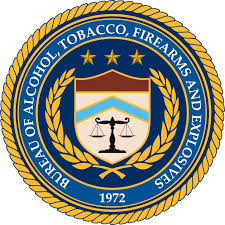By George L. Lyon, Jr, Esq.
Although, the Second Amendment guarantees the right of the people to keep and bear arms, that right is not absolute. A person can lose his or her firearm rights in a number of ways. These include conviction of a felony, an involuntary commitment to a mental hospital, conviction for a domestic violence offense, or being subject to a domestic abuse restraining order. There are a number of other prohibited categories not pertinent to this discussion.
If you have been convicted of a felony by a Virginia state court or subject to an involuntary commitment to a mental health facility in Virginia, there are procedures whereby we can help you obtain your firearms rights back. We need to emphasize, however, that if you have been convicted of a felony in federal court, these procedures will not work for restoring your firearm rights. At this time only a presidential pardon can do that. Additionally, these procedures will not work for a domestic abuse conviction.
If your conviction resulted from a plea agreement, in which you pled guilty to a lesser offence in exchange for a lighter sentence, you might not have realized that you lost your Second Amendment rights as part of your plea deal. If your facing criminal charges, it’s important to be represented by competent legal counsel who is also sensitive to your wish to preserve your rights.
Restoring Rights from a Virginia State Felony Conviction
In Virginia, anyone convicted of a felony will lose his or her firearm rights. However, Virginia law allows restoration of firearm rights following a felony conviction. It is a two-step procedure. The first step, following service of the sentence and any period of probation, is to seek restoration of civil rights from the Governor. This can be accomplished via the Virginia Secretary of the Commonwealth’s web site. The applicant will be sent an executive order from the Governor restoring his or her civil rights, except for the right to possess and ship firearms. The applicant will then need to petition the Circuit Court in the county or city where he or she lives to restore his firearms rights. Arsenal Attorneys™ can assist you with this process.
We will ask to obtain records relating to your conviction and other documents supporting your rehabilitation to include in the petition, including your employment history, community involvement, and letters of recommendation from persons in the community. We then submit the petition to the court and to the local Commonwealth’s Attorneys office. Often the Commonwealth’s Attorney will agree to the proposed order to restore gun rights. If not, the Court will schedule a hearing to decide whether to grant the petition.
Restoring Rights from an Involuntary Mental Health Commitment
The procedure for restoration of rights from a mental health commitment is slightly different. A petition is filed with the District Court where the petitioner resides rather than the Circuit Court, and it is served on the Commonwealth’s Attorney. The Court will schedule a hearing on the petition.
The petition for restoration from a mental health commitment contains similar information as a petition for restoration from a felony conviction. But rather than providing information concerning a conviction, the petition includes information concerning the original commitment, including, if possible, notes from the treating facility. We also strongly suggest including a current evaluation from a mental health profession, such as a psychologist or psychiatrist. We have doctors who are knowledgeable of gun issues to whom we refer our clients. We also recommend including other documents such as employment history, driving record, and letters of recommendation.
If you have been previously convicted of a felony in a Virginia court or involuntarily committed in Virginia and would like to explore restoration of your firearm rights, we offer a complimentary consultation to explore whether you are a good candidate to apply for restoration of your firearms rights. Please contact Arsenal Attorneys to learn how we can help you restore your rights.
Arsenal Attorneys’ George Lyon is licensed to practice law in Virginia and the District of Columbia. He was one of the plaintiffs in the Palmer v. District of Columbia case that forced DC to begin issuing concealed carry licenses and in the Heller case that legalized handguns in Washington, DC. Mr. Lyon is licensed by the Metropolitan Police Department to teach the DC concealed carry course including the renewal course and conducts the course monthly. His next class is November 16 in Arlington, Virginia. To sign up for his course, contact Mr. Lyon at gll[at]arsenalattorneys.com or at 703-291-3312.
This blog is for educational purposes only and is not intended as legal advice or to create an attorney-client relationship.

 ATF provided an explanation of the common errors made on its "
ATF provided an explanation of the common errors made on its "